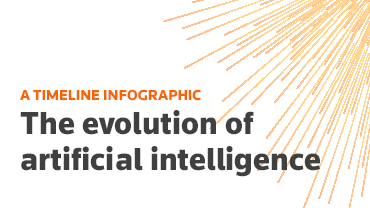There is no doubt that the accounting profession is in the midst of change. Gone are the days of transactional tax preparation confined solely to tax season. Today, accounting firms are going beyond traditional tax prep to ensure long-term success.
Jump to:
| The role of emotional intelligence (EQ) in client relationships |
| The evolution of client service in accounting firms |
| Leveraging technology for enhanced client service |
Forward-looking accountants are increasingly realizing the importance of harmonizing technical tax expertise with interpersonal relationship skills. It’s a blend of art and science, the mastery of which leads to sustained growth and long-lasting client relationships.
But how do you strike this balance effectively? Let’s explore the powerful combination of technical tax knowledge and emotional savvy, and how they work together to drive client satisfaction, workflow optimization, and profitability.
The role of emotional intelligence (EQ) in client relationships
Traditionally, IQ was seen as the gold standard for success. This is true in accounting, where knowledge of tax laws and compliance is paramount. However, an individual’s emotional quotient (EQ) is also an important indicator for deeper client connections.
While technical proficiency will always remain vital in accounting, emotional intelligence fosters a deeper understanding of others. In a competitive landscape, this can become a major strategic advantage. Clients gravitate towards accountants who not only address their immediate financial concerns but also provide support and guidance that help them make better decisions.
By shifting towards a more personalized, proactive, and consultative approach, today’s accounting firms are not only meeting the evolving needs of their clients but also driving business growth, client satisfaction, and referrals.
The evolution of client service in accounting firms
Traditionally, accounting firms have operated on a transactional basis, providing yearly services primarily focused on compliance and reporting requirements. However, the rise of AI-powered tax technology and increasing client demands have prompted accountants to move beyond compliance into value-added services that address clients’ broader financial needs year-round.
This shift towards an advisory approach is driven by the desire to strengthen client relationships and become trusted advisors. Rather than simply completing tax returns or financial statements, accountants are proactively engaging with clients throughout the year, offering strategic guidance on tax planning, financial management, and business growth strategies.
By taking the time to truly understand your client’s unique circumstances and goals, your firm can tailor services to meet each individual’s needs. This personalized approach not only enhances the client experience but also builds trust and loyalty, ultimately leading to long-term client relationships. In addition, satisfied clients are more likely to recommend the firm to others, resulting in increased organic growth and revenue opportunities.
Leveraging technology for enhanced client service
In today’s digital age, technology plays a pivotal role in shaping the client experience. Accounting firms are leveraging advanced software, automation, and AI-powered solutions to streamline processes, improve efficiency, and deliver better outcomes for clients.
From cloud-based accounting platforms that enable real-time collaboration to AI-powered tools that provide predictive insights, technology empowers accountants to offer more strategic advice based on actionable insights.
Among the many AI-powered tools available, automation, real-time collaboration, data analytics, and CRM integration stand out as game-changers, offering a myriad of benefits to both accounting firms and clients. Let’s take a look.
-
- Automation. AI-powered software can automate repetitive tasks such as data entry, invoice processing, and reconciliation, saving accountants valuable time and reducing the likelihood of errors. This automation frees up accountants to focus on higher-value activities like analysis, strategy, and client advisory services.
- Real-time collaboration. AI-powered tools enable accountants and their clients to collaborate in real time, regardless of geographical location. Whether it’s sharing documents, discussing financial strategies, or providing feedback on reports, AI-driven collaboration platforms streamline communication and enhance productivity, fostering stronger client relationships and satisfaction.
- Data analysis. AI algorithms can analyze large volumes of financial data quickly and accurately, uncovering insights and trends. This helps accountants identify risks, opportunities, and anomalies in financial statements, enabling more informed decision-making and strategic planning for both the firm and its clients.
- Improved compliance and risk management. AI-powered compliance tools can continuously monitor changes in tax rules and flag potential compliance issues or discrepancies in financial records. By leveraging AI for compliance and risk management, accountants can ensure that their clients remain compliant with relevant laws and regulations, minimizing the risk of penalties or legal issues.
- Personalized client service. AI-driven CRM systems can analyze client data and interactions to provide personalized recommendations and advice tailored to each client’s unique needs and preferences. This enables accountants to deliver proactive advice, identify upselling opportunities, and strengthen client relationships by demonstrating a deeper understanding of their client’s business and financial goals.
By embracing the latest technology and pairing it with a strong emotional connection, your firm can stay one step ahead of the curve and deliver a truly exceptional client experience.
For more insights on providing exceptional client service in your firm, explore our client service white paper below
White paperBeyond numbers: The art and science of exceptional client service in accounting firms
|













